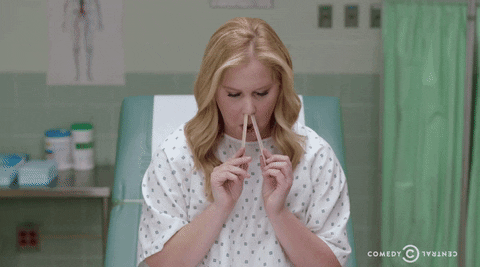
Humans love procrastination. I bet there’s something you’re putting off right now. I also bet whatever the task is, it’ll probably take you 10 minutes and leave you wondering why you didn’t do it sooner.
If there’s one thing you should absolutely stop avoiding, it’s getting an STI test. Yes, getting an STI test doesn’t really fall into the aesthetic category of self-care (it’s not exactly an IG-story worthy activity like a bubble bath is). However, it’s one of the most important things you can do for your health and the health of others. STIs are so common – around 16% of people are reported to have had one at one point, and left untreated, can cause a slew of life-long health issues that can be avoided.
To put it simply, I know you’ve probably made up a few excuses in your time to put off taking a test – excuses come hand in hand with procrastination because we yearn for the need to justify our inaction. Well, it’s 2021, and we’re more aware of our fleeting existence than ever before – so here’s a list of lame excuses you’ve probably used to avoid getting tested and why they’re complete nonsense, to finally push you to get swabbed.
“I’m healthy and don’t have any symptoms.”
It’s the oldest excuse in the book. You look and feel fine, so why worry? Unfortunately, STIs are sneaky little things that may live in your body for months without a diagnosis because they sometimes don’t present with symptoms. If you leave them untreated, they can cause long-term health problems like infertility, pelvic inflammatory disease, or even swollen testes, so getting tested yearly or every time you change sexual partners, (even without symptoms) is imperative.
On the flipside to this, common signs of STIs like chlamydia, herpes and gonorrhoea include unusual discharge from your vagina or penis, difficulty or pain when you urinate or have sex, as well as blisters, warts, lumps, bumps or sores on your genitals.
“I’m too busy to get tested.”
This is quite possibly the ~flakiest~ excuse you could give of the lot. We could all make a case for being too busy to do anything in life, but learning time management is an essential aspect of being an adult.
Seriously, stop procrastinating – doing an STI test is so easy and quick, and it’s the only true way of know if you’ve got an STI. A test will include providing a urine and blood sample and / or taking a swab for the lab to test, and you’ll generally get your results back in a week.
Sound like a life-overtaking task? No.

“I’m too scared to get tested.”
As a perennial hypochondriac, I relate to this excuse in a big way. The thought of sitting in a doctor’s office, giving samples and waiting for results sends shivers down my spine. But, as humans with bodies that have the potential to glitch at times, medical screening is simply a part of life we have to deal with.
Think about what’s actually scarier – the discomfort of waiting for results or winding up with long-term health problems because you had an STI and put off treatment?
If you do have an STI, it’s not the end of the world – there are a plethora of support and treatment options available. If you don’t, you’ll have peace of mind and the freedom to go forth and boink safely once more.
“All my partners have been tested, so why should I?”
Talking about your health and history with STIs is an important element of all safe and respectful relationships. If all of your partners have told you they’ve been tested and are STI-free, that’s great news – it means you’re talking openly with each other and that they’re genuinely looking out for your safety.
However, just because your partners have been tested, you’re not automatically exempt from one too. The responsibility is a two-way street, and it’s recommended you get tested once a year or each time you change sexual partners. Also, people have been known to lie.
“I’ve only slept with a few people.”
The same goes as the above – having only slept with a few people doesn’t make you immune to STIs. Once is all it takes.

“We didn’t have penetrative sex, so I can’t have one.”
There seems to be a ~big~ misconception that you can only contract an STI if P in V / B action occurred. That is complete hogwash. Most STIs are passed on through bodily fluids (semen, vaginal fluids, blood) or by genital skin to skin contact. So, if you’ve engaged in any form of unprotected sexual activity (that includes putting P/V/ B in and around your mouth), sticking to the recommendation of getting tested for every new sexual partner and at least once a year is essential.
“I’m too scared of telling people I have one, so I’d rather avoid it.”
Talking about all elements of sex is the most important part of any intimate relationship – from consent, to what feels good to whether you’ve tested positive for an STI. It’s important you tell your partner(s) whether you’ve tested positive so they can also get tested and receive the treatment they need.
It’s not exactly the most pleasant convo to have, but a bit of awkwardness upfront is going to save you a lot of strife in the long run. If you’re struggling to figure out how exactly to let your partner know, there are a variety of resources available online with advice on the topic, and your doctor can also provide directives on how to go about it.
“The person I’m sleeping with just got out of a long term relo.”
I can see the logic behind this one, but people who’ve been in long term relos are not immune to STIs. There’s also no guarantee they got tested before that long term relationship or that that relationship happened to monogamous. C’mon.

“I’ve never had an STI, so I must be fine.”
The reality is that STIs are on the rise, and if you are sexually active, you are at some risk of contracting one. I don’t mean to be a fearmonger, but it’s important we’re all aware of how common they are to normalise the conversation around them, so we can all live healthier, happier and less anxiety-fuelled lives.
“I don’t know how and where to get a test.”
This is quite possibly the laziest excuse of the lot. We live on the internet people, every bit of knowledge that has ever been thought up or discovered is available at our fingertips. You can get tested at your GP or at a sexual health clinic, and you can also take this online test to determine whether you’re at risk.
Going to the doctor can sometimes be uncomfortable. If you’ve experienced doctors asking invasive or rude questions about you and your sex life that don’t sit right, you are not obligated to visit them again, so doing some research to find one that’ll support you is important. Remember, it might be tough at first, but taking the steps to find a sexual health routine that works for you is so worth it for your own health and safety.



